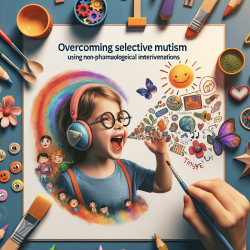Introduction
Mood profiling has long been a valuable tool in psychological research and practice. The Brunel Mood Scale (BRUMS), originally developed in English, has been widely used to assess mood states in various contexts. Recently, a Lithuanian-language version of the BRUMS, known as the BRUMS-LTU, was validated, opening new doors for mood research in Lithuania. This blog explores the implications of this research and how practitioners can leverage these findings to enhance their skills and encourage further research.
Understanding the BRUMS-LTU
The BRUMS-LTU is a 24-item, 6-factor scale designed to measure mood states such as Tension, Depression, Anger, Vigor, Fatigue, and Confusion. The validation study involved 746 Lithuanian-speaking participants and demonstrated the scale's robust psychometric properties. The study found that the BRUMS-LTU is a reliable and valid tool for assessing mood in Lithuanian contexts, making it a valuable resource for practitioners and researchers alike.
Implications for Practitioners
For practitioners working in special education and online therapy, the BRUMS-LTU offers several benefits:
- Enhanced Mood Assessment: The BRUMS-LTU provides a quick and reliable way to assess mood states, allowing practitioners to identify mood-related issues in students and clients effectively.
- Gender and Age Insights: The study revealed gender differences in mood scores, with men generally reporting more positive moods than women. Understanding these differences can help tailor interventions to individual needs.
- Screening for Mental Health Risks: The BRUMS-LTU can serve as a valuable screening tool for identifying individuals at risk of mental health disorders, enabling early intervention and support.
Encouraging Further Research
The validation of the BRUMS-LTU opens the door to a wide range of research opportunities:
- Cross-Cultural Studies: Researchers can explore how mood profiles vary across different cultural contexts, contributing to a deeper understanding of mood dynamics globally.
- Longitudinal Studies: Long-term studies using the BRUMS-LTU can provide insights into how mood states change over time and in response to various interventions.
- Application in Sports and Education: The scale's applicability in sports and educational settings offers opportunities to study the impact of mood on performance and learning outcomes.
Conclusion
The BRUMS-LTU is a powerful tool for practitioners and researchers interested in mood assessment and intervention. Its validation in the Lithuanian context provides a solid foundation for future studies and applications. By leveraging the insights from this research, practitioners can enhance their skills and contribute to the growing body of knowledge on mood and mental health.
To read the original research paper, please follow this link: Validation of a Lithuanian-Language Version of the Brunel Mood Scale: The BRUMS-LTU.










